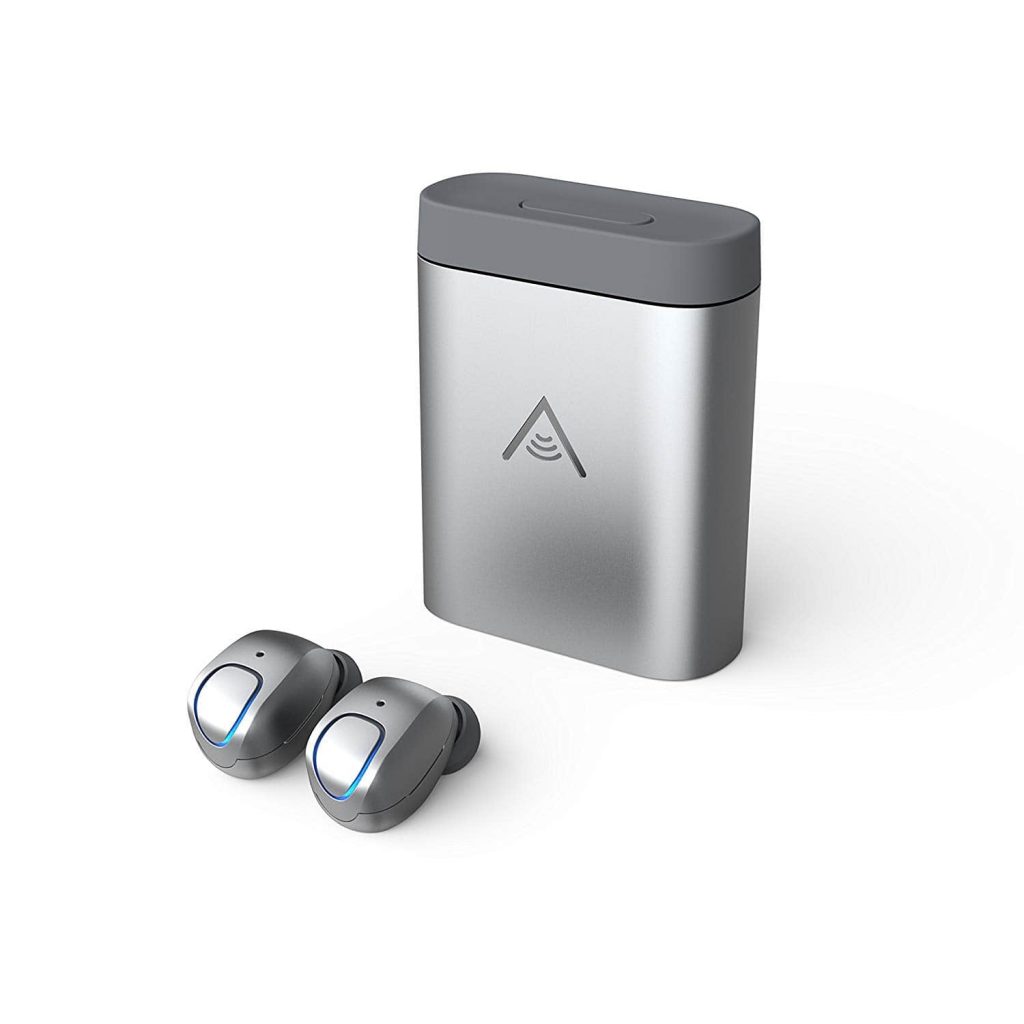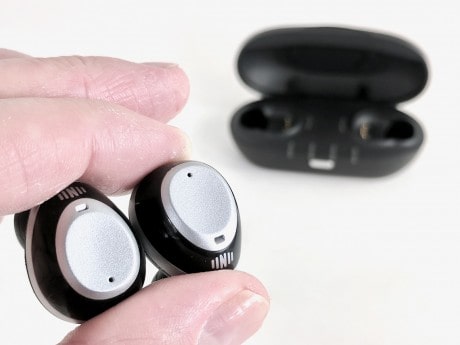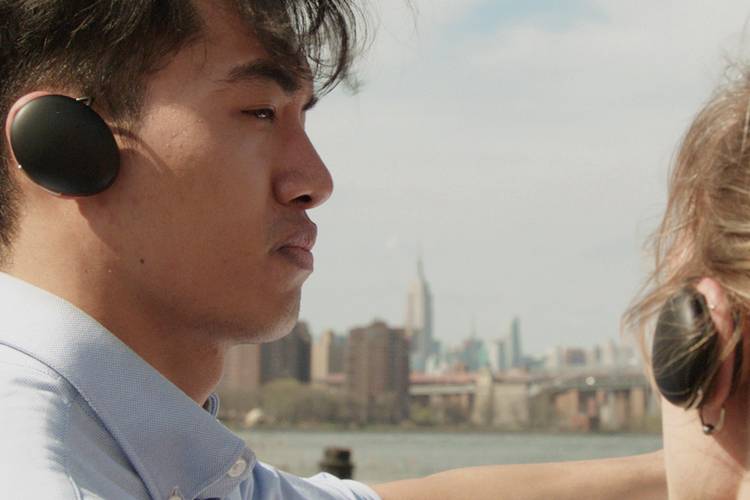In this article:
- Definition of hearables
- The ear – an unexpected window into our body
- What can be accessed through the ear
- The data which a hearable can record and monitor
- 12 ways hearables can improve your life
- Hearables – from physical wellbeing to mental wellbeing
- Challenges
When we think of hearing technology we immediately refer to our old grandfather whose hearing has been diminishing over time and now he is wearing a hearing aid.
Or we think of the latest movie where Secret Service agents save the president in the last minute while receiving instructions into their hearing piece.
How about you? There’s nothing wrong with your hearing, yet you own and wear headphones or earbuds on a daily basis to listen to podcasts or music on your way home from work.

Hearables are more than headphones or hearing aids. They are smart wearables that you put in your ear instead of your wrist.
What are hearables?
A hearable is a wireless in-ear computational earpiece. Essentially you have a microcomputer that fits in your ear canal and utilizes wireless technology to supplement and enhance your listening experience. Many hearables will also feature additional features such as heart rate monitoring.

Skybuds
The ear – an unexpected window into our body
When we don’t feel well, we go to the doctor’s and ask for a series of blood tests to tell us what is wrong with us. Our eyes can also be indicative of our state of health. Sudden blurry vision may be a sign of an incipient stroke, the beginning of a migraine or a case of diabetic retinopathy.
Besides the blood and the eyes, there is another organ which can give us data related to the state of our health: the ear.
Poppy Crum, chief scientist at Dolby Laboratories and an adjunct professor at Stanford University writes in her latest article Hearables will monitor your brain and body to augment your life that thanks to their physiology, ears can speak volumes about us.

Nuheara IQ buds
What can be accessed through the ear:
- Brain electrical activity
- Blood oxygen
- Stress hormone levels
- Movement
- Eye movements
- Vagus nerve stimulation
- Temperature
- Skin resistance
- Heart rate
What data can be monitored by a hearable device:
- Stress
- Mental effort
- Where your eyes are directed
- Engagement
- Excitement
- Whom you’re paying attention to
- Physical health
- What calms you
The benefits of hearables
A man is freefalling from the top of a skyscraper. Superman flies in and saves him from certain death. Hearing over large distances is one of Superman’s powers. You may be surprised to learn that you don’t have to be born on another planet to get this particular superpower. Hearables can help you with that.
A hearable that listens to its owner for weeks, months, or years will have deep insight into that person’s mind.
Poppy Crum, Hearables Will Monitor Your Brain and Body to Augment Your Life
12 ways hearables can improve your life:
- Instantly measure heart rate, body temperature, blood pressure, pulse oximetry, ECG, electro-encephalogram signals;
- Physical activity tracking;
- Better sound filtering which improves sound quality;
- Hearing improved above normal levels;
- Seamless synchronization to your smart devices (smartphone, home devices, digital assistants etc);
- Layered listening which would allow users to filter out or enhance specific sounds;
- Translation – remember Babelfish, the small, bright yellow fish in The Hitchhiker’s Guide to the Galaxy which can be placed in someone’s ear in order for them to be able to hear any language translated into their first language? Well, Douglas Adams got this thing right only it’s not biologic, it’s technological. This hearable device is called Ambassador and is the product of Waverly Labs, a tech startup at the convergence of wearable technology and machine translation;
- Augment voices for clarity;
- Enhance ambient sounds;
- Noise cancellation;
- Detects driver fatigue and distraction;
- Monitor brain waves in order to generate a better output sound.

Ambassador, the hearables produced by Waverly Labs
The above-mentioned features are included in a wide range of hearable devices already on the market or available for pre-order like Skybuds, Nura Headphones or Nuheara. For a complete list of hearables and hearable companies to watch, check Everyday Hearing.
Hearables – From physical wellbeing to mental wellbeing
Neuroscientist and technologist Poppy Crum is on a mission to build technologies that best leverage human physiology to enhance our experiences and how we interact with the world.
Here’s what the future of hearables looks like in her opinion:
Within five years, a new wave of smart hearing aids will be able to recognize stress, both current and anticipatory. These intelligent devices will do this by collecting and combining several kinds of physiological data and then using deep-learning tools to tune the analysis to individuals, getting better and better at spotting and predicting rising stress levels. The data they use will most likely include pulse rate, gathered using optical or electrical sensors, given that a rising heart rate and shifts in heart rate variability are basic indicators of stress.
Poppy Crum, Hearables Will Monitor Your Brain and Body to Augment Your Life
The hearables of the future will be able to treat tinnitus, the so-called ringing in the ears. They could also and stimulate the brain to address PTSD or treat addiction, making the transition from physical wellbeing to mental wellbeing.
Challenges
Obviously, this technology will be AI-based. And with any AI-based technology that collects personal data comes privacy, security and legal issues.
In recent years, our society has been confronted with a number of large scale misuse of personal data. Today we have legal requirements and regulations in place which give users control over their own data and prevent these situations from happening again.
Poppy is confident technology will provide us with the right solutions. Here’s what she says:
I am confident that we can meet these challenges. The benefits of hearables will far outweigh the negatives—and that’s a strong motivation for doing the work needed to sort out the issues of privacy and security. When we do, hearables will constantly and silently assess and anticipate our needs and state of mind while helping us cope with the world around us. They will be our true life partners.
What is your opinion?
Join the Conversation
We’d love to hear what you have to say.
Get in touch with us on our LinkedIn Group, Facebook Group or Twitter.


















